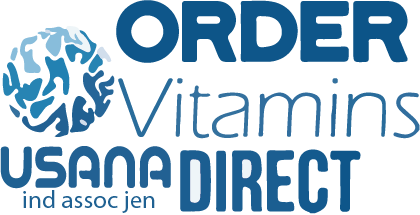
3 Things That Affect the Absorption of Your Vitamin Supplement
Your health is something to be taken very seriously. You want to be as healthy as possible, which is why you take a daily multivitamin in the first place. However, you may accidentally be doing something that is affecting the absorption of these vitamins. If your body isn't absorbing them, you aren't reaping the full benefits of taking them.
In order to learn what could be affecting your absorption of your multivitamin, we must first discuss the term "bioavailability." This is the portion of a given active ingredient that is capable of being absorbed through your intestinal membranes into your bloodstream and made available for use by your organs. According to leading research, the amount of each vitamin which is made bioavailable varies from as low as 20% to as high as 98%.
That is quite a big difference! What accounts for this significant variance? It is affected by several factors, including these three:
#1 Eating foods with inhibitors
You are taking a multivitamin to make up for what you're missing in your diet, but sometimes your diet is actually stopping your vitamins from working properly. Some foods contain compounds which inhibit the utilization of vitamins by way of reducing solubility or the amount released, even so-called healthy foods. Proteinase is an enzyme which breaks down protein. Proteinase inhibitors in some raw fruits and vegetables can interfere with vitamin absorption. Enzymes that destroy or inactivate thiamine (vitamin B1) can be found in fish and shellfish.
#2 Drinking too much alcohol
The body has many complex nutrient absorption pathways. These pathways are fragile and easily affected by your lifestyles. As a quick example, chronic excess alcohol consumption can inhibit the absorption of many vitamins. Excess alcohol inhibits an enzyme in the liver, which in turn inhibits the absorption of thiamin (vitamin B1) by the organism.
#3 You don't have enough fat in your diet
Vitamins are either water soluble or fat soluble. A lack of dietary fat has been known to reduce the absorption of fat-soluble vitamins. Vitamin D is an example of a fat soluble nutrient. What does this mean exactly, though? The vitamin is stored in fatty tissue and is released as the tissue is broken down by the body. This also means that fat must be present in your intestines for vitamin D to be properly absorbed. Remember, not all fat is bad fat! If your diet does not include healthy fatty acids your ability to absorb vitamin D may be reduced.
We don't want you to just buy and take your multivitamin. We want you to absorb as much as possible, so you can have the best possible health. If you're doing any of the common mistakes mentioned above, it is time you stop so you can fully absorb your multivitamin. If you are starting your healthy journey, Activate Your Life Pact is the perfect fit for you.
